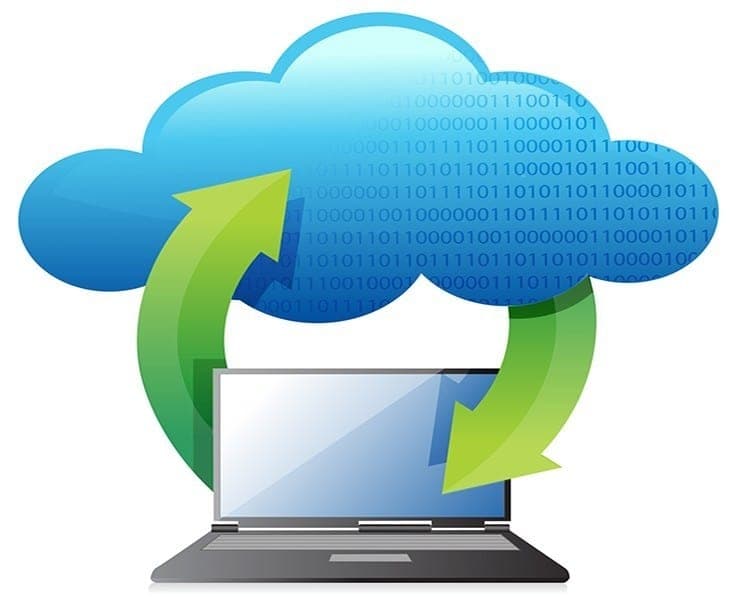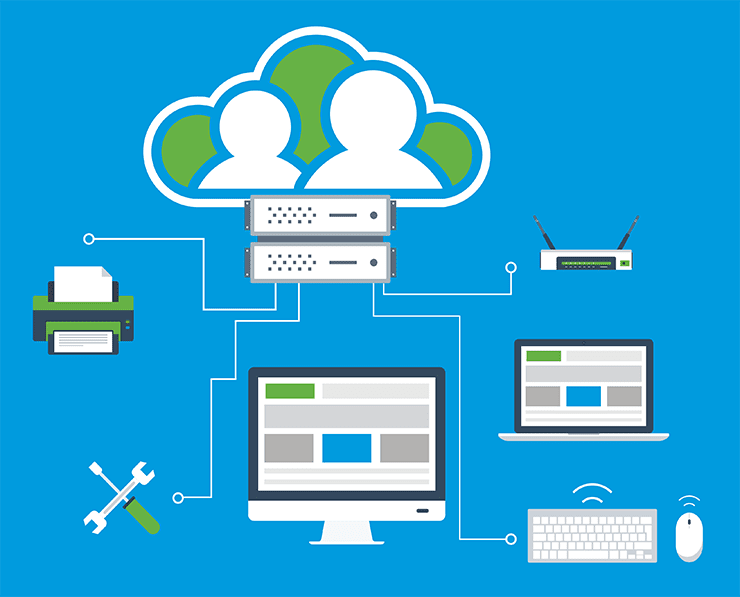Student Feedback
2V0-731: VMware Certified Professional 7 - Cloud Management and Automation Certification Video Training Course Outline
Introduction
VMware on AWS Cloud Basics
VMware on AWS Services Overview
Basic Configuration Tasks
Compute Gateway
Management Gateway
Connectivity Options
Additional Capabilities
vRealize Automation
Introduction
2V0-731: VMware Certified Professional 7 - Cloud Management and Automation Certification Video Training Course Info
Advanced Cloud Automation with VMware vRealize: 2V0-731 Course
Comprehensive VMware 2V0-731 training to master cloud management, automation, and vRealize, and achieve VCP-CMA certification.
What you will learn from this course
• Deploy and configure VMware vRealize Automation to manage cloud resources efficiently
• Create and manage catalog items and entitlements to deliver automated services
• Design and implement blueprints for infrastructure and application deployments
• Configure and manage Infrastructure as a Service (IaaS) components
• Integrate vRealize Automation with external systems for extended automation
• Monitor, troubleshoot, and report on cloud environments
• Implement security policies and maintain compliance in a cloud automation context
• Prepare effectively for the VMware 2V0-731 exam
Learning Objectives
• Understand the core concepts of VMware Cloud Management and Automation
• Gain hands-on experience deploying and configuring vRealize Automation
• Learn to create and manage catalog services, including entitlements and approvals
• Develop skills to design blueprints for automated infrastructure and application services
• Configure and manage IaaS components, including virtual machines, storage, and networking
• Acquire the ability to monitor cloud environments, analyze metrics, and troubleshoot issues
• Understand and apply security and compliance standards within vRealize Automation
• Prepare strategically for the VMware Certified Professional 7 Cloud Management and Automation exam
Target Audience
This course is designed for IT professionals seeking expertise in VMware cloud management and automation. The target audience includes:
• Cloud administrators responsible for deploying and managing automated cloud services
• IT operations engineers managing virtualized environments and cloud infrastructures
• Cloud architects designing scalable and automated solutions in VMware environments
• Automation engineers implementing Infrastructure as Code (IaC) and workflow automation
• Consultants supporting organizations in deploying VMware Cloud Management solutions
• IT managers seeking to enhance their teams’ efficiency through automation
Overview
The VMware Certified Professional 7 - Cloud Management and Automation (VCP-CMA) training course equips learners with the knowledge and skills required to manage and automate cloud environments using VMware vRealize Automation. The course covers key concepts, tools, and techniques necessary to implement cloud management solutions that streamline IT operations and accelerate service delivery.
The curriculum emphasizes a hands-on approach, providing practical experience with deploying, configuring, and managing vRealize Automation. It enables participants to design automated services, manage virtual infrastructure, monitor performance, enforce security and compliance standards, and integrate with external systems.
Through this training, learners will gain confidence in using VMware cloud management tools, enabling organizations to improve operational efficiency, reduce manual tasks, and provide self-service capabilities to business units. The course aligns with the VMware 2V0-731 exam objectives, ensuring that participants are fully prepared to achieve certification and demonstrate professional competency in cloud management and automation.
Participants will learn how to navigate the vRealize Automation interface, configure tenants and business groups, and manage catalog items to deliver tailored services. The course also covers creating blueprints that define infrastructure and application deployments, which form the foundation for automation and consistency in cloud environments. By mastering these concepts, IT teams can reduce deployment times and increase reliability in cloud operations.
Another critical aspect covered in the course is managing IaaS components. This includes creating and provisioning virtual machines, configuring storage and networking, and managing resource allocation across different environments. Participants will learn best practices for efficiently deploying and maintaining cloud resources while ensuring availability and scalability.
Monitoring and reporting a vital components of cloud management, and this course provides in-depth coverage on configuring alerts, dashboards, and performance metrics in vRealize Automation. Learners will understand how to analyze logs, detect anomalies, and troubleshoot issues proactively. This ensures cloud environments remain optimized and reliable, minimizing downtime and improving service quality.
Security and compliance are integral to cloud management, and the course emphasizes strategies for securing cloud services, configuring access controls, and enforcing organizational policies. Participants will learn how to implement compliance frameworks and audit processes to maintain governance and regulatory requirements. This knowledge ensures that automated cloud services operate securely and adhere to industry standards.
The course also highlights integration with external systems and platforms. Learners will explore how vRealize Automation can connect to other VMware products, third-party tools, and IT service management platforms. These integrations enhance automation capabilities and streamline workflows, enabling organizations to implement end-to-end service delivery processes.
Hands-on labs are incorporated throughout the course to provide practical experience. Participants will practice deploying vRealize Automation, configuring tenants and business groups, creating catalog items, designing blueprints, managing IaaS components, monitoring performance, and implementing security policies. These exercises ensure learners can apply concepts in real-world scenarios and gain confidence in performing tasks required for the VCP-CMA certification exam.
The course structure is designed to build progressively, starting with fundamental concepts and moving to advanced topics such as workflow automation, blueprint design, and integrations. This approach ensures learners develop a solid foundation before tackling complex tasks, enhancing their understanding and skill retention.
Upon completion, participants will be equipped to deploy cloud services efficiently, automate infrastructure and application provisioning, monitor and optimize performance, and maintain security and compliance. They will also have the knowledge to implement best practices and leverage vRealize Automation features to maximize operational efficiency.
This training is suitable for professionals who wish to advance their careers in cloud management and automation, providing a recognized certification that validates expertise and opens opportunities in cloud administration, architecture, and IT operations. The skills gained apply to a wide range of enterprise environments, ensuring learners can make immediate contributions to their organizations.
By following this course, participants will be prepared to take the VMware 2V0-731 exam, demonstrating their competency in VMware cloud management and automation solutions. Achieving the certification confirms a professional’s ability to deploy and manage automated cloud environments, aligning with industry standards and best practices.
Course Modules / Sections
The VMware 2V0-731 training course is structured into comprehensive modules that cover all essential aspects of cloud management and automation. Each module focuses on specific domains to ensure learners gain practical skills and a deep understanding of vRealize Automation capabilities. The course modules include:
Introduction to VMware Cloud Management and Automation
This module introduces participants to VMware’s cloud management suite and the role of automation in modern IT environments. Learners gain insight into the architecture, components, and functionality of the VMware vRealize Suite. The module highlights the advantages of cloud automation in terms of efficiency, scalability, and operational agility. Participants learn the core concepts that form the foundation for deploying and managing cloud services effectively.
Deploying and Configuring vRealize Automation
This section covers the installation, configuration, and deployment of vRealize Automation. Participants learn how to set up tenants, configure business groups, and manage the infrastructure required to support cloud automation. The module emphasizes proper configuration practices to ensure a scalable and resilient automation environment. Learners also explore the integration of vRealize Automation with other VMware products and external tools.
Managing and Configuring Catalog Services
This module focuses on creating and managing catalog items, entitlements, and approval policies. Participants learn how to define services for end users, configure access rights, and manage workflows to streamline service delivery. The section provides practical guidance on organizing catalogs, implementing approval policies, and ensuring that services align with organizational requirements.
Automating Infrastructure and Application Services
Participants are guided through the process of designing and implementing blueprints for infrastructure and application services. This module covers the creation of multi-tier applications, deployment policies, and workflow automation. Learners gain skills to automate repetitive tasks and streamline the provisioning of virtual machines, applications, and network resources. The module emphasizes best practices in blueprint design and lifecycle management.
Managing Infrastructure as a Service (IaaS)
This module focuses on IaaS components, including the management of virtual machines, storage, networking, and resource allocation. Participants learn to configure IaaS endpoints, manage reservations, and implement machine provisioning strategies. The module also addresses the monitoring and maintenance of IaaS components to ensure optimal performance and availability of automated services.
Monitoring, Reporting, and Troubleshooting
Monitoring and reporting are essential aspects of cloud management. This module teaches participants how to configure dashboards, alerts, and performance metrics in vRealize Automation. Learners gain the ability to analyze logs, detect anomalies, troubleshoot issues, and optimize resource usage. The module ensures that participants can maintain reliable and efficient cloud services.
Security and Compliance Management
Security and compliance are integral to cloud automation. This module covers configuring security policies, managing user roles, and implementing compliance standards. Participants learn how to audit and report on cloud environments, enforce governance policies, and maintain regulatory compliance. The module provides practical guidance on securing automated services and mitigating risks.
Integration with External Systems
This module explores how vRealize Automation integrates with external tools, platforms, and VMware products. Participants learn to leverage REST APIs, orchestrator workflows, and third-party integrations to extend automation capabilities. The module emphasizes end-to-end service delivery and how integration enhances operational efficiency.
Exam Preparation and Practice
The final module guides preparation for the VMware 2V0-731 exam. Participants review key concepts, practice with real-world scenarios, and take mock exams to build confidence. The module ensures learners are ready to demonstrate their skills and knowledge in cloud management and automation.
Key Topics Covered
The course covers an extensive range of topics to ensure comprehensive preparation for the VMware 2V0-731 exam. Key topics include:
VMware Cloud Management Concepts
• Overview of VMware vRealize Suite and its components
• Understanding cloud management architecture
• Benefits and use cases of automation in enterprise environments
• Core terminology and concepts used in vRealize Automation
vRealize Automation Deployment and Configuration
• Installing vRealize Automation and configuring infrastructure components
• Setting up tenants and business groups
• Managing endpoints, fabric groups, and reservations
• Implementing high availability and scalability strategies
Catalog Services and Service Management
• Creating catalog items and defining service offerings
• Configuring entitlements and access controls
• Implementing approval policies and workflows
• Managing the lifecycle of catalog services
Blueprint Design and Automation
• Designing infrastructure and application blueprints
• Implementing multi-tier applications and deployment policies
• Using workflow automation to provision resources
• Applying best practices for blueprint versioning and maintenance
Infrastructure as a Service (IaaS) Management
• Managing virtual machines, templates, and machine provisioning
• Configuring storage, networks, and resource allocation
• Implementing governance policies for IaaS resources
• Monitoring and optimizing IaaS performance
Monitoring and Reporting
• Configuring dashboards and performance metrics
• Setting up alerts and notifications for proactive monitoring
• Analyzing logs and troubleshooting issues
• Optimizing cloud services for efficiency and reliability
Security and Compliance
• Managing user roles and access permissions
• Configuring security policies and authentication methods
• Implementing compliance frameworks and auditing processes
• Maintaining regulatory compliance and governance
Integration and Extensibility
• Integrating vRealize Automation with VMware vSphere, vRealize Orchestrator, and other platforms
• Using REST APIs for automation and orchestration
• Extending automation workflows with third-party tools
• Implementing end-to-end service delivery processes
Exam Preparation
• Reviewing exam objectives and domains
• Practicing with sample questions and mock exams
• Applying learned concepts in practical scenarios
• Strategies for successful certification
Teaching Methodology
The VMware 2V0-731 training course utilizes a blended teaching methodology designed to provide both theoretical knowledge and practical experience. The methodology includes:
Instructor-Led Training
Experienced instructors deliver lectures, demonstrations, and guided exercises. Participants learn foundational concepts, best practices, and advanced techniques in cloud management and automation. Instructors provide real-world examples to illustrate the application of vRealize Automation in enterprise environments.
Hands-On Labs
Practical labs are an integral part of the training. Participants deploy vRealize Automation, configure tenants and business groups, create catalog items, and design blueprints. Hands-on exercises enable learners to apply theoretical knowledge, practice troubleshooting, and gain confidence in performing real-world tasks.
Scenario-Based Learning
Participants engage in scenario-based exercises to simulate enterprise cloud environments. These scenarios provide practical context for deploying infrastructure, automating workflows, managing IaaS, and ensuring security and compliance. Scenario-based learning helps learners understand how to apply concepts in realistic situations.
Self-Paced Learning
Supplementary self-paced materials, including documentation, videos, and practice exercises, support independent learning. Participants can review topics, repeat lab exercises, and consolidate understanding at their own pace. This approach ensures learners can reinforce knowledge and prepare effectively for the exam.
Interactive Discussions
Classroom discussions and Q&A sessions encourage learners to share experiences, clarify concepts, and discuss challenges. Interactive discussions promote critical thinking, collaboration, and a deeper understanding of cloud management principles.
Continuous Feedback
Instructors provide feedback on lab exercises, practical tasks, and assessments. Continuous feedback helps participants identify areas for improvement, reinforce strengths, and ensure mastery of key concepts and skills.
Assessment & Evaluation
The VMware 2V0-731 training course includes assessment and evaluation components designed to measure learners’ understanding, skills, and readiness for the certification exam. Assessments are structured as follows:
Knowledge Assessments
Participants complete quizzes and exercises throughout the course to assess comprehension of key concepts. Knowledge assessments evaluate understanding of cloud management principles, vRealize Automation components, blueprint design, IaaS management, security, compliance, and integrations.
Practical Lab Evaluation
Hands-on lab exercises are evaluated to ensure learners can apply theoretical knowledge in practical scenarios. Participants demonstrate proficiency in deploying vRealize Automation, configuring tenants, creating catalog items, designing blueprints, managing IaaS resources, and implementing monitoring and security measures.
Scenario-Based Exercises
Scenario-based evaluations test the ability to solve real-world challenges in cloud management and automation. Participants apply skills in designing workflows, troubleshooting issues, optimizing performance, and ensuring compliance. These exercises reinforce problem-solving skills and readiness for enterprise environments.
Mock Exams
Practice exams simulate the VMware 2V0-731 certification exam environment. Participants answer multiple-choice, drag-and-drop, and matching questions covering all exam domains. Mock exams help learners identify knowledge gaps, improve time management, and build confidence for the official certification exam.
Continuous Assessment
Ongoing assessment through participation, discussions, and practical exercises ensures learners are consistently evaluated. Continuous assessment provides insights into progress, areas for improvement, and readiness for certification.
Certification Readiness Evaluation
At the conclusion of the course, participants undergo a comprehensive evaluation to determine their readiness for the VMware 2V0-731 exam. This includes reviewing exam objectives, assessing performance in labs and scenario-based exercises, and completing practice exams. Learners receive guidance and strategies to ensure successful certification.
The assessment and evaluation framework ensures that participants not only gain theoretical knowledge but also develop the practical skills required to deploy, manage, and automate cloud environments effectively. By completing the course, learners are prepared to achieve VMware VCP-CMA certification and demonstrate professional competency in cloud management and automation.
Benefits of the Course
The VMware 2V0-731 training course offers a wide range of benefits for IT professionals, cloud administrators, and engineers seeking expertise in cloud management and automation. Participants gain both theoretical knowledge and practical skills to enhance operational efficiency in enterprise environments. By completing this course, learners develop the ability to design, deploy, and manage automated cloud services using VMware vRealize Automation.
One of the primary benefits is gaining in-depth knowledge of VMware cloud management architecture. Participants understand the core components of vRealize Automation, including tenants, business groups, catalog services, blueprints, and IaaS components. This understanding allows them to configure, manage, and optimize cloud services effectively, ensuring that organizations can deliver reliable, scalable, and automated solutions.
The course also equips learners with practical skills through hands-on labs and scenario-based exercises. Participants gain experience in deploying and configuring vRealize Automation, designing blueprints for infrastructure and applications, managing catalog items and entitlements, provisioning virtual machines, and configuring storage and networking. These practical experiences ensure that learners can apply their knowledge in real-world enterprise environments.
Another key benefit is the ability to implement and manage automation workflows. Participants learn to create blueprints, configure deployment policies, and automate resource provisioning, reducing manual tasks and accelerating service delivery. Automation improves consistency, minimizes errors, and allows IT teams to focus on strategic initiatives rather than repetitive operational tasks.
The course also emphasizes monitoring, troubleshooting, and reporting. Participants learn to configure dashboards, alerts, and performance metrics, analyze logs, and resolve issues proactively. This skill set ensures that cloud environments remain optimized and reliable, improving service availability and performance for business users.
Security and compliance are critical in modern cloud environments, and this course provides practical guidance on implementing policies and maintaining governance. Participants gain the ability to configure user roles, enforce access controls, implement compliance frameworks, and audit cloud operations. This ensures that automated services adhere to organizational standards and regulatory requirements, reducing risks and maintaining operational integrity.
Integration capabilities are another important benefit of this course. Participants learn to connect vRealize Automation with other VMware products, third-party tools, and IT service management platforms. These integrations extend automation capabilities, enable end-to-end service delivery, and streamline workflows across multiple environments, enhancing operational efficiency and flexibility.
Certification preparation is a further advantage. The course aligns fully with the VMware 2V0-731 exam objectives, ensuring that learners are well-prepared to achieve VCP-CMA certification. By completing the course and earning certification, professionals validate their expertise in cloud management and automation, improving career prospects and professional credibility.
The skills and knowledge gained through this course are also transferable to a wide range of enterprise environments. Participants are equipped to manage hybrid and private clouds, automate IT operations, and optimize resource utilization. These capabilities make learners valuable assets to organizations seeking to implement efficient, scalable, and secure cloud infrastructures.
Participants also benefit from exposure to best practices and industry standards. The course emphasizes recommended approaches for designing blueprints, provisioning resources, managing services, and maintaining compliance. Adhering to best practices ensures that cloud services are reliable, efficient, and aligned with organizational goals.
Networking opportunities are another benefit. Learners interact with instructors and peers, sharing experiences, challenges, and solutions. This collaborative learning environment allows participants to gain insights from real-world scenarios, discuss practical implementation strategies, and enhance their professional network within the VMware ecosystem.
Overall, completing the VMware 2V0-731 training course provides participants with the technical expertise, practical skills, and certification readiness required to succeed in cloud management and automation roles. It enables professionals to contribute effectively to enterprise cloud initiatives, streamline operations, and deliver high-quality automated services.
Course Duration
The VMware 2V0-731 training course is designed to provide comprehensive coverage of cloud management and automation concepts while allowing sufficient time for hands-on practice. The total duration of the course typically spans multiple days or weeks, depending on the delivery format and participant schedule.
For instructor-led training, the course is usually delivered over five to eight days, with each day consisting of several hours of lectures, demonstrations, and practical exercises. This schedule allows learners to absorb theoretical concepts, apply knowledge in labs, and reinforce learning through scenario-based exercises.
Self-paced online learning formats provide flexibility, allowing participants to complete the course at their own pace. Learners can progress through modules sequentially, review content as needed, and repeat practical exercises until they achieve mastery. The total duration for self-paced courses may vary depending on the participant’s familiarity with VMware technologies, but it typically ranges from 40 to 60 hours of learning content.
The course structure ensures that participants have ample time to understand core concepts, configure and deploy vRealize Automation, design blueprints, manage IaaS components, monitor performance, and implement security and compliance measures. The duration also allows for exam preparation, practice assessments, and review of key topics to ensure readiness for certification.
Tools & Resources Required
To maximize learning and gain hands-on experience in the VMware 2V0-731 training course, participants need access to specific tools and resources. These tools enable practical exercises, simulations, and real-world applications of cloud management and automation concepts.
VMware vRealize Automation
vRealize Automation is the primary tool used in the course. Participants require access to a fully deployed vRealize Automation environment to practice installation, configuration, blueprint design, catalog management, IaaS provisioning, monitoring, and workflow automation.
VMware vSphere
vSphere provides the underlying virtualization platform for cloud management. Participants should have access to a vSphere environment to manage virtual machines, networks, and storage resources as part of hands-on labs and practical exercises.
VMware vRealize Orchestrator
vRealize Orchestrator is used to create and automate workflows that extend the capabilities of vRealize Automation. Learners need access to this tool to practice integrating automation workflows and extending service delivery.
Documentation and Study Guides
Official VMware documentation and exam guides are essential resources for reference, review, and self-paced learning. These materials provide detailed explanations of concepts, procedures, best practices, and configuration examples.
Lab Environment
Participants require a lab environment that simulates enterprise cloud infrastructure. This may include virtual machines, network configurations, storage resources, and sample workloads. A lab environment allows learners to perform practical exercises safely and gain confidence in real-world scenarios.
Internet and Collaboration Tools
Reliable internet access is necessary for accessing online course materials, documentation, VMware portals, and community resources. Collaboration tools such as discussion forums, virtual classrooms, and chat platforms enhance interaction with instructors and peers.
Practice Exams and Sample Questions
Practice exams and sample questions are valuable resources for evaluating knowledge, identifying areas for improvement, and preparing for the VMware 2V0-731 certification exam. These tools help learners simulate the exam environment and build confidence in their understanding of cloud management and automation.
Virtual Lab Software
Participants may also use virtualization platforms such as VMware Workstation or VMware ESXi to create isolated environments for experimentation. This allows learners to practice deployments, configuration changes, and automation workflows without affecting production systems.
By leveraging these tools and resources, participants can gain hands-on experience, reinforce theoretical concepts, and develop the practical skills required to excel in VMware cloud management and automation. Access to these tools ensures that learners are well-prepared for both practical scenarios and certification assessments.
The combination of comprehensive instruction, hands-on labs, practical exercises, and access to the necessary tools and resources enables participants to achieve mastery of VMware vRealize Automation. It prepares them to deploy automated services efficiently, manage cloud environments effectively, and achieve VMware VCP-CMA certification.
Completing the course with these tools equips professionals with the expertise to implement cloud automation strategies, optimize IT operations, and contribute to organizational success. Participants leave the course ready to handle real-world challenges, implement best practices, and leverage VMware technologies to deliver high-quality cloud services.
Career Opportunities
The VMware 2V0-731 training course provides professionals with specialized skills in cloud management and automation, opening a wide range of career opportunities in IT, cloud computing, and enterprise environments. Achieving VMware Certified Professional 7 - Cloud Management and Automation (VCP-CMA) certification validates expertise in deploying, managing, and automating cloud infrastructure, positioning individuals for advanced roles and increased responsibilities.
Cloud administrators benefit from enhanced capabilities to manage self-service cloud environments, provision resources efficiently, and maintain operational stability. Professionals in this role are responsible for deploying virtual machines, managing IaaS components, automating infrastructure tasks, and monitoring performance across cloud environments. The course equips learners to perform these tasks with accuracy and consistency, enabling organizations to scale services and reduce manual workloads.
Cloud architects gain expertise in designing and implementing automated solutions for enterprise cloud infrastructure. With knowledge of blueprint design, service catalogs, IaaS provisioning, and integration with external systems, architects can develop scalable, secure, and efficient cloud solutions. This skill set enables them to contribute strategically to cloud transformation initiatives, improving business agility and operational efficiency.
IT operations engineers and automation specialists can leverage the skills gained from this course to optimize workflows, implement end-to-end automation, and integrate cloud management platforms with enterprise systems. Professionals in these roles can reduce operational complexity, minimize errors, and increase service delivery speed by applying automation best practices learned during the course.
Security and compliance specialists also benefit from this training by understanding how to configure policies, manage access controls, and maintain compliance frameworks in automated cloud environments. Professionals can ensure that cloud deployments adhere to organizational and regulatory standards, mitigating risks while maintaining operational efficiency.
Consultants and cloud solution advisors can use the expertise gained from the VMware 2V0-731 training course to design, implement, and support client cloud environments. By understanding vRealize Automation architecture, IaaS management, and integration with third-party platforms, consultants provide value by recommending solutions that optimize cloud operations, enhance automation, and improve service reliability.
The course also enables professionals to pursue roles such as IT service manager, cloud service delivery manager, and infrastructure engineer. These roles require both technical proficiency and strategic insight into cloud management, and the course prepares learners to handle enterprise-level responsibilities with confidence.
Overall, the career opportunities stemming from the VMware 2V0-731 certification are extensive. Professionals gain recognition for their expertise in cloud management and automation, improving employability, career advancement potential, and opportunities for higher compensation. The skills acquired in this course are relevant to a broad range of industries adopting cloud technologies, including financial services, healthcare, telecommunications, and enterprise IT.
Hands-On Labs and Practical Exercises
Hands-on labs form a critical component of the VMware 2V0-731 training course. They provide practical experience in deploying, configuring, and managing vRealize Automation environments. Participants engage in exercises that replicate real-world scenarios, allowing them to apply theoretical concepts, troubleshoot issues, and optimize automated services.
Labs include the deployment and configuration of vRealize Automation, setup of tenants and business groups, and integration with VMware vSphere and other enterprise systems. Participants practice creating and managing catalog items, defining entitlements, and implementing approval workflows. These exercises reinforce the understanding of how services are delivered to end users and ensure consistency in cloud operations.
Blueprint design labs allow learners to create multi-tier applications and automated infrastructure deployments. Participants gain experience designing deployment policies, configuring application services, and implementing lifecycle management. These labs emphasize best practices in automation, enabling learners to streamline resource provisioning and reduce manual intervention.
IaaS management labs focus on virtual machine provisioning, network and storage configuration, and resource allocation. Participants learn to manage reservations, implement governance policies, and monitor performance to ensure optimal operation of automated services. These exercises provide practical experience in managing cloud infrastructure efficiently and maintaining service quality.
Monitoring and reporting labs teach learners to configure dashboards, set alerts, and analyze performance metrics. Participants gain skills in troubleshooting issues, identifying anomalies, and optimizing system performance. These labs ensure that learners can maintain reliability and operational efficiency in cloud environments.
Security and compliance labs focus on configuring access controls, managing roles, and implementing compliance frameworks. Participants learn to audit cloud operations, maintain regulatory compliance, and enforce organizational security policies. These exercises provide practical experience in ensuring that automated services remain secure and aligned with industry standards.
Integration labs explore connecting vRealize Automation with third-party tools, VMware products, and external systems. Participants practice using REST APIs, creating orchestrator workflows, and extending automation capabilities. These exercises teach learners how to implement end-to-end service delivery, improving operational efficiency and enabling seamless integration across enterprise environments.
The combination of theoretical instruction and hands-on practice ensures that participants gain the confidence and skills required to perform tasks effectively in real-world cloud environments. This practical experience is critical for passing the VMware 2V0-731 exam and succeeding in professional roles that require expertise in cloud management and automation.
Exam Preparation
The VMware 2V0-731 training course includes comprehensive exam preparation to ensure participants are ready to achieve VCP-CMA certification. Exam preparation involves reviewing all course objectives, practicing with scenario-based exercises, and taking mock exams that simulate the official certification test environment.
Participants learn to focus on key domains, including cloud management concepts, vRealize Automation deployment and configuration, catalog services, blueprint design, IaaS management, monitoring and reporting, security and compliance, and integration with external systems. The exam preparation modules provide strategies to approach multiple-choice, drag-and-drop, and matching questions, helping learners develop problem-solving skills under timed conditions.
Practice exams and sample questions allow participants to evaluate their knowledge, identify areas for improvement, and gain confidence in their readiness for certification. By completing these exercises, learners develop familiarity with the types of questions asked on the VMware 2V0-731 exam and refine their understanding of core concepts.
Additional preparation includes reviewing best practices, troubleshooting guides, and real-world scenarios. Participants gain the ability to apply their knowledge practically, ensuring they are not only prepared for the exam but also capable of performing cloud management and automation tasks effectively in professional environments.
Conclusion
The VMware 2V0-731 training course provides a comprehensive and structured learning path for professionals seeking expertise in cloud management and automation. Participants gain theoretical knowledge, practical skills, and hands-on experience with VMware vRealize Automation, preparing them to deploy, manage, and automate cloud services in enterprise environments.
By completing this course, learners develop the ability to design blueprints, manage catalog services, provision IaaS components, implement monitoring and reporting, enforce security policies, maintain compliance, and integrate automation workflows with external systems. These capabilities ensure that cloud operations are efficient, reliable, and aligned with organizational goals.
The course also prepares participants to achieve the VMware Certified Professional 7 - Cloud Management and Automation certification, validating their expertise and enhancing career opportunities. Professionals can pursue roles such as cloud administrator, cloud architect, IT operations engineer, automation engineer, consultant, and IT service manager. Certification provides recognition, credibility, and potential for career advancement and higher compensation.
Through hands-on labs, practical exercises, scenario-based learning, and exam preparation, participants gain confidence and readiness to apply their knowledge in real-world environments. The skills acquired are relevant across multiple industries and enterprise cloud initiatives, ensuring learners can contribute effectively to organizational success.
Completing the VMware 2V0-731 training course equips professionals with the knowledge, skills, and certification readiness required to excel in cloud management and automation roles. It enables organizations to improve operational efficiency, streamline service delivery, and maintain secure, compliant, and automated cloud environments.
Enroll Today
Enroll in the VMware 2V0-731 training course to advance your career in cloud management and automation. This comprehensive program is designed to provide you with hands-on experience, in-depth knowledge, and practical skills needed to master VMware vRealize Automation and successfully manage modern cloud environments. By participating in this course, you will gain the expertise required to deploy, configure, and automate cloud services, enabling you to streamline IT operations, increase efficiency, and reduce manual workloads.
The course not only prepares you for real-world cloud management tasks but also equips you with the knowledge and confidence to pass the VMware Certified Professional 7 - Cloud Management and Automation (VCP-CMA) certification exam. Achieving this certification validates your technical competency, enhances your professional credibility, and positions you as a skilled cloud management professional in the competitive IT industry.
Throughout the course, you will engage in hands-on labs, practical exercises, and scenario-based learning that simulate real enterprise environments. This ensures that you can apply concepts immediately, understand best practices, and solve complex automation and cloud management challenges effectively. You will also learn to design blueprints, configure catalog items, manage IaaS components, implement security and compliance measures, and integrate automation workflows with other enterprise systems.
By enrolling today, you are taking the first step toward expanding your career opportunities in roles such as cloud administrator, cloud architect, IT operations engineer, automation specialist, or IT consultant. The skills and certification gained through this course are recognized globally and will help you secure high-value positions in organizations that rely on VMware technologies for their cloud infrastructure.
Don’t miss this opportunity to enhance your technical expertise, gain practical experience, and earn a valuable certification that demonstrates your proficiency in cloud management and automation. Join a community of professionals who are shaping the future of IT by implementing efficient, automated, and scalable cloud solutions. Enroll today to start your journey toward VMware VCP-CMA certification and open doors to exciting career growth, professional recognition, and long-term success in the field of cloud management and automation.













